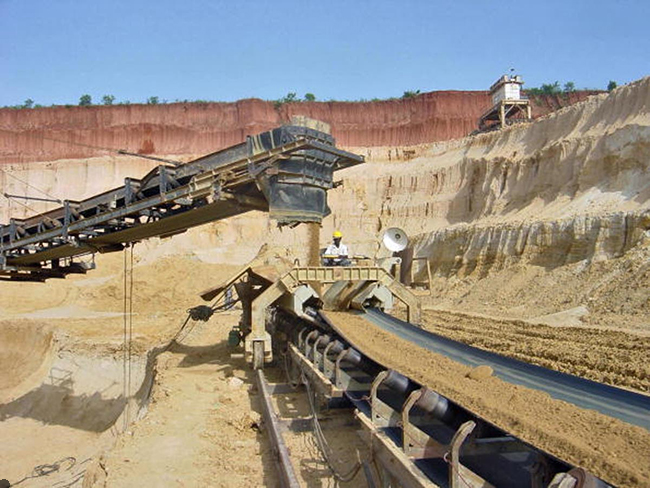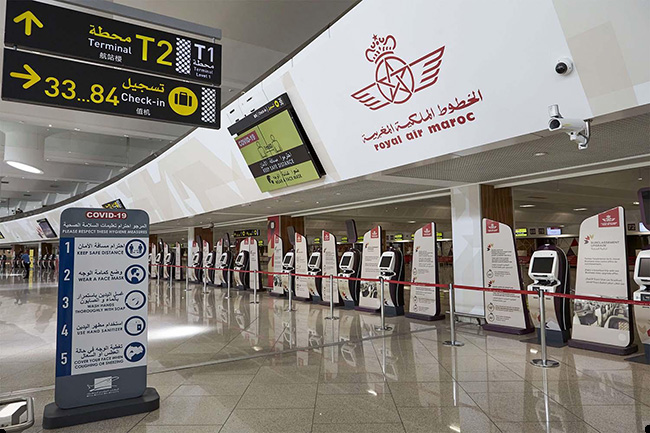On 15 March, the New Zealand High Court of Justice issued its decision following legal action initiated last year by two members of the Polisario separatist movement.
Polisario's target was the New Zealand Superannuation Fund (NZSF), a sovereign wealth fund which is a kind of pension fund and which has invested in recent years in fertiliser production activities using phosphate from the Moroccan Sahara.
More than 40 years ago, New Zealand - a great agricultural power - developed a commercial relationship with Morocco, known worldwide for its production of phosphate-based fertilisers.
Polisario has been trying for years to damage Morocco's trade relations with other countries. Many attempts have been made in Europe and, for example, Polisario relies on some very left-wing political forces in the European Parliament.
However, whenever the EU-Morocco trade relationship has been endangered by Polisario's legal manoeuvres, reason has always prevailed.
The New Zealand ruling is therefore interesting for several reasons.
In its decision, the High Court of Auckland first asserts that Polisario does not have a recognised legal status that would allow it to sue in court and therefore it responds to the request of a private person, namely a Mr Kamal Fadel. This is an important point that underlines yet again the fragility or even absence of any legal status of the Polisario movement.
Secondly, the High Court affirms that the regional dispute over the Moroccan Sahara is of a geopolitical nature and does not fall within its competence. The High Court is indeed a national judicial institution of New Zealand, which does not have the role of deciding, under international law, on the status of a territory.
The High Court also affirmed that the Sovereign Wealth Fund's investments meet the legal and ethical requirements of ‘responsible investment’ imposed by both New Zealand law and the United Nations.
It adds that these investments comply with New Zealand's statutory obligation to preserve its reputation. The Judgment states that "the legal and ethical obligations of the NZSF have all been met".
A quick search makes it easy to verify that the NZSF is in full compliance with its obligations as a responsible investor. It is rated A+ by the United Nations in its annual assessment of governance and strategy for responsible investment.
The New Zealand judiciary has taken the Polisario complaint very seriously. The New Zealand Fertilizer Association was given the opportunity, on a voluntary basis, to express the New Zealand industry's position on the dispute.
The Association’s representatives provided convincing evidence that investment and business activities in Morocco's southern provinces are fully consistent with international responsible investment practices.
The Court recalled that the New Zealand Super Fund had informed itself about the situation in Morocco's Southern Provinces before investing: it had taken steps to consult the Ministry of Foreign Affairs and Trade on the official position of the New Zealand government, and to engage with New Zealand industry.
The New Zealand companies involved in the Sahara provinces have always insisted on the legality of trade relations with Morocco. They have visited the southern provinces on several occasions and have seen for themselves the positive social and economic impact of their activities.
The invalidation of the separatists' request by the High Court of New Zealand is a major setback for Polisario and its supporters. The separatist movement had high hopes for this application and had expected to find in it elements of profitable jurisprudence.
Once again, a national jurisdiction affirms that it is not competent to pronounce on a conflict whose solution lies within the remit of the United Nations and in the hands of the powers concerned.
Once again, a national court affirms that it is legal to invest in the southern provinces of Morocco, to import phosphate produced in these provinces and to contribute, through economic investment, to the development of an entire region of Morocco.
By once again directly attacking the economic and social development of the Moroccan Sahara regions, Polisario demonstrates that it does not have the welfare of the Saharawi population at heart.
Neither the European Union's justice system, nor that of New Zealand or any other country, is qualified to pronounce on the status of a territory. This matter is in the hands of the United Nations, and no doubt more deeply in the hands of Algerian leaders who one would like to be visionary enough to build peace with Morocco rather than supporting artificial separatism.
The lesson of this Judgment is that companies from all over the world can invest in the phosphate of southern Morocco and in any other economic sector of these regions, such as fishing or tourism.
Not only will these companies contribute to the wellbeing of local populations, but they will also not risk anything legally. Year after year, legal failure after legal failure, Polisario reveals its sad face: that of an organisation from the past, which is heading for the dustbin of history.
*Dr Aymeric Chauprade is a well-known geopolitician, former MEP and member of the European Parliament’s Foreign Affairs Committee







